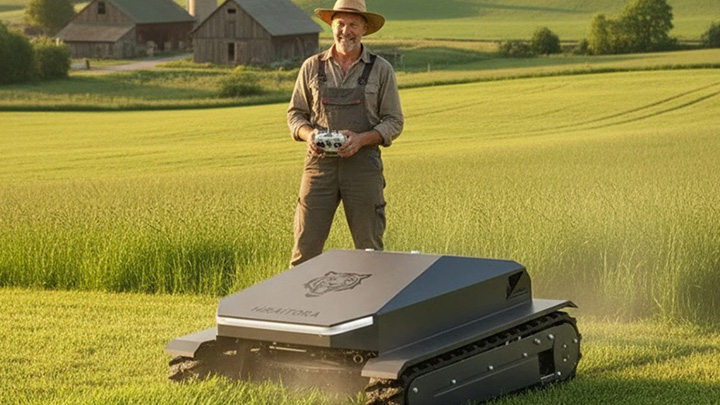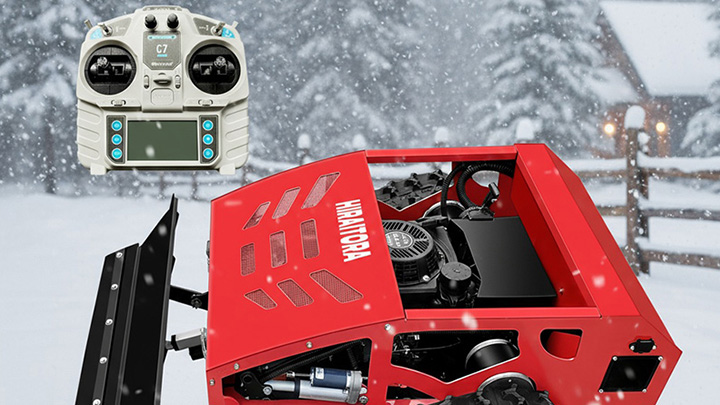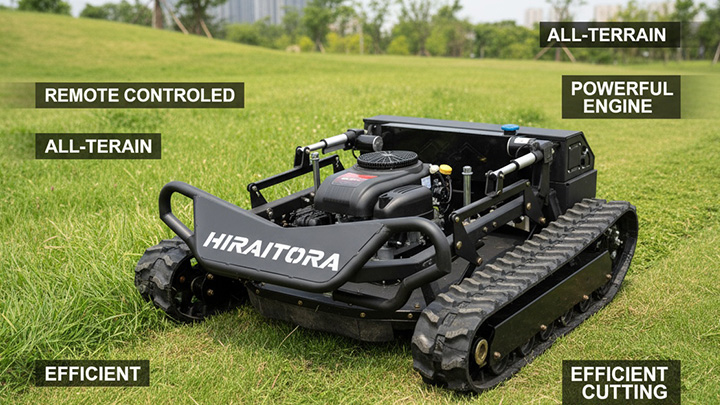How to Choose the Perfect Robotic Lawn Mower: A Buyer's Guide
Imagine a perfectly manicured lawn, week after week, without you ever having to push a heavy mower, breathe in exhaust fumes, or spend a precious Saturday afternoon on the task. This is the promise of the robotic lawn mower. But with a growing number of models on the market, how do you choose the right one for your garden?
Selecting a robotic mower isn't just about picking the most expensive or the one with the most features. It's about finding a machine that is a perfect partner for your specific lawn. This guide will walk you through the key factors to consider.
1. Understand Your Lawn: The Foundation of Your Choice
Before you look at any models, start by analyzing your lawn.
- Lawn Area: This is the most critical factor. Every robotic mower is rated for a maximum lawn area (e.g., 0.5 acres or 2,000 sqm). Choose a model that can handle at least 20% more than your actual lawn size to account for obstacles, slopes, and complex layouts.
- Complexity and Slope: Is your lawn a simple rectangle, or does it have numerous flower beds, trees, and narrow passages? Models with advanced navigation and "stay-out" zones are essential for complex gardens. Also, check the mower's gradeability (e.g., 25%, 35%, or even 50% for very steep hills). A higher percentage means it can handle steeper inclines.
- Boundary Wires vs. Wire-Free: Most robotic mowers use a perimeter wire that you bury just under the soil or pin to the ground to define the mowing area. This is highly reliable but requires initial setup. A new, premium category is "wire-free" mowers that use GPS and cameras to navigate, but their performance can vary and they are often better suited for very large, open properties.
2. Key Features to Compare
Once you know your lawn's needs, you can dive into the features that differentiate the models.
- Cutting System: Look for a "mulching" mower. These cut grass into tiny clippings that are returned to the lawn as natural fertilizer, promoting a healthier turf. Avoid any that collect grass clippings.
- Navigation: Basic models use a random bounce pattern, which works but can be inefficient. More advanced models use an "AI-Assisted" or systematic navigation to mow in straight, overlapping lines, ensuring more even coverage, especially on complex lawns.
- Installation: Are you a DIY person? Many brands offer self-installation kits. If your lawn is complex or you'd prefer not to do it yourself, professional installation is a valuable service to look for.
- Theft Protection: A mower sitting in your garden is a potential target. Essential security features include:PIN Code Lock: The mower won't start without a code.GPS Tracking: Allows you to locate the mower on a map if it's stolen.Loud Alarm: Triggers if the mower is lifted without authorization.
- Connectivity (App Control): A companion smartphone app is now standard. It allows you to schedule mowing, adjust settings, receive notifications, and track the mower's status from anywhere. Check if the app is well-reviewed and user-friendly.
- Weather Resistance: Ensure the mower is fully waterproof (IPX rating) to operate in rain and dew. Most modern models are.
3. Practical Considerations
- Budget: Robotic mowers range from a few hundred to several thousand dollars. Remember to factor in the potential cost of professional installation and any optional accessories like guide wires or extra boundary wire.
- Noise Level: One of the biggest advantages is quiet operation. Compared to a traditional gas mower, robotic mowers are very quiet, typically operating at around 60 decibels—quieter than a normal conversation. This means you can have it mow early in the morning or late in the evening without disturbing your neighbors.
- Brand Reputation and Support: Choose a brand with a good track record for reliability and customer service. Read reviews and check what the warranty covers.
A Simple Checklist for Your Purchase
Answer these questions before you buy:
- What is the total area of my lawn? (Find a mower with a suitable max area)
- How steep and complex is my garden? (Check slope handling and navigation features)
- Am I comfortable installing a boundary wire, or do I need a wire-free/pro-install option?
- What security features are important to me? (PIN, Alarm, GPS)
- What is my budget? (Including potential installation costs)




